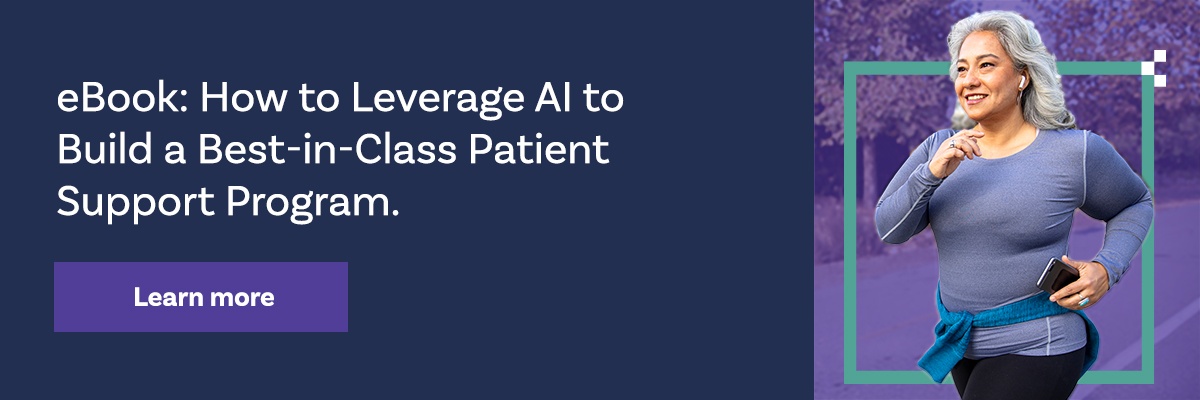Healthcare is transitioning to a patient-centric approach powered by healthcare consumerism. Patients have fast become consumers first, and with the freedom to make decisions about their health journeys, they’re looking for healthcare choices that put them at the center. Evidence has also shown that adopting an approach focused around the patient leads to better health outcomes.
Patient-centricity at its core is about making decisions while keeping the patient’s values, goals, and medication adherence barriers in mind. Engaging patients and their caregivers in healthcare decisions can positively impact their medication adherence and persistence.
What is the Impact of Patient-Centricity?
A patient-centric approach emphasizes patient engagement in their own care. Engaged patients are more likely to adhere to medication schedules and care plans, make healthier choices, and experience better health outcomes.
In fact, according to a study from Health Affairs, patients who are engaged in their own medical care are three times less likely to have unmet medical needs, and are twice as likely to seek care in a timely manner when compared to unengaged patients.
There is a growing body of evidence that giving patients the skills, confidence, and tools to become more actively engaged in their healthcare leads to greater health outcomes, lower costs, and better overall medication adherence.

How to Implement a Patient-Centric Approach with AI
As patients become more active healthcare consumers, they’re seeking options that empower them to make better decisions about their treatments. At the same time though, despite pharma’s significant investment in patient support services, only one in five patients were aware of these services, and that level didn’t change at all between 2015 and 2020.
Pharma needs to be more familiar with a patient’s goals, treatment beliefs, and any adherence barriers preventing them from taking their medication as directed, and this can all be achieved through the power of predictive artificial intelligence (AI).
AI can be tremendously helpful in personalizing the patient experience. Many healthcare organizations—including pharmaceutical manufacturers, pharmacies, health plans, and PBMs—are turning to AI to implement patient-centered interventions and patient support programs.
Let’s explore some of the steps you can take with AI to boost patient-centricity and, as a result, medication adherence.
Value Continuous Learning
AI continuously gathers and learns from new data about a patient including their intent and behaviors. It then synthesizes the information to optimize interventions and target patients who will benefit most from these touchpoints, predicting the individual’s next-best-action that will result in engagement. This allows for a more proactive approach, leading to better medication adherence and health outcomes.
Commitment to continuous learning and optimization demonstrates to both healthcare providers and consumers the quality of offered services, boosting patient engagement, medication initiation, and brand loyalty. Using AI to measure and demonstrate the impact on patient engagement paves the way for continually improving and refining your outreach and engagement strategies, delivering overall greater long-term value for patients.
Deliver Engaging Content to Patients
With AI in your corner, you can better target patients with content that directly resonates with them on the channels they’re on, with the messages they care about, and at the times that it will have the most receptive impact. Content should be well-researched, informative, easy to access and understandable for patients, and targeted toward the individuals that will most likely engage and benefit from it.
When patients have resources that empower them, they are more likely to ask questions, actively participate in their health journey, and adhere to their medications.
Personalize Patient-Centric Outreach
AI can personalize patient outreach by providing actionable insights for the best content, timing, and frequency that will maximize the impact for each person. Some patients may benefit more from SMS text messages, whereas others benefit from hands-on education. Either way, the message is tailored to the patient and is delivered in a cost-effective, efficient way that achieves better medication adherence and patient outcomes.
That said, no two patients are the same, so a support program that works for one person may not work for another. That’s why tailored outreach at the individual level is crucial for delivering personalized, patient-centric strategies.
